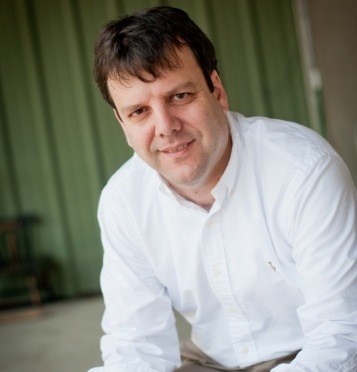Horowitz: Broadening Opportunity Pays Off for our Economy
Tuesday, February 13, 2018

Rob Horowitz
The study examines the lives of more than one million inventors in the United States to determine who becomes one and why. According to the study “Children from high income families are ten times more likely to become inventors than children from low income families.” These stark disparities are not mainly a result of potential for math and science excellence as measured by third grade test scores. While it is the case that excelling in math and science is a significant factor in whom among children from high income families will go on to be an inventor, children from low income families with high potential to excel in math and science are still highly unlikely to become inventors.
The study’s most optimistic finding is that by simply providing low income students more exposure to successful inventors and the possibility of becoming one through school programs and in other ways a good part of this gap can close. As the study authors assert, “Children who grow up in areas with more inventors – and are thereby more exposed to innovation while growing up – are much more likely to become inventors themselves.” This is the case after controlling for other factors such as family income. Right now, children from low income families have far less exposure to inventors in their own families, neighborhoods, and schools than children from high income families.
Similarly, the study finds that if young women were exposed more regularly to successful women inventors the still considerable gap between the number of men and the number of women who become inventors would be cut in half.
Giving a broader range of youth exposure to successful inventors would provide a large economic boost, say the study’s authors.” If women, minorities, and children from low-income families were to invent at the same rate as white men from high-income (top 20%) families, the rate of innovation in America would quadruple.”
Given the outsized importance of innovation to generating economic growth, it is time to use our schools and after-school programs to introduce a broader range of our youth to inventors-- with a special emphasis on low-income youth-- and to do so systematically.
The potential pay-off both in the realization of individual potential and in broader economic benefits is enormous.
Rob Horowitz is a strategic and communications consultant who provides general consulting, public relations, direct mail services and polling for national and state issue organizations, various non-profits and elected officials and candidates. He is an Adjunct Professor of Political Science at the University of Rhode Island.
Related Articles
- Horowitz: The Divider in Chief Strikes Again
- Horowitz: Corker Sounds Alarm We Should All Heed
- Horowitz: Trump Makes Wrong Choice on Healthcare Again
- Horowitz: Bush, Obama, and McCain Speak Up for American Values
- Horowitz: The False Choice - Focusing on Hurricane Victims or Climate Change
- Horowitz: Donald, Chuck, and Nancy
- Horowitz: MSNBC Gaining From Trump Presidency
- Horowitz: National Climate Change Report Highlights Need for Action
- Horowitz: Trump Continues Politics of Racial Division with Disgraceful Pardon of Arpaio
- Horowitz: Trump’s Base Begins to Erode
- Horowitz: Russia is No Hoax
- Horowitz: State & Local Leaders Fill Void at International Climate Conference
- Horowitz: Trump Gives Dems Winning Hand Unless They Overplay It
- Horowitz: 5 Reasons for New Year’s Optimism
- Horowitz: Trump Turns Celebration of MLK into a Surreal Occasion
- Horowitz: Flake & McCain Sound the Alarm on Trump’s Attacks on Free Press
- Horowitz: Latinos Continue to Make Impressive Progress
- Horowitz: State of the Union Provides Trump With an Opportunity to Reset
- Horowitz: Attacks on Mueller Don’t Pass the Laugh Test
- Horowitz: Immigrants Drive American Entrepreneurship
- Horowitz: Backsliding on Birth Control Makes No Sense
- Horowitz: It’s Time to Revive the “Death” Tax
- Horowitz: Believing You Can Get Smarter Improves School Performance
- Horowitz: Flynn Plea Agreement Spells Trouble for Trump Administration
- Horowitz: The Memo Farce




Follow us on Pinterest Google + Facebook Twitter See It Read It